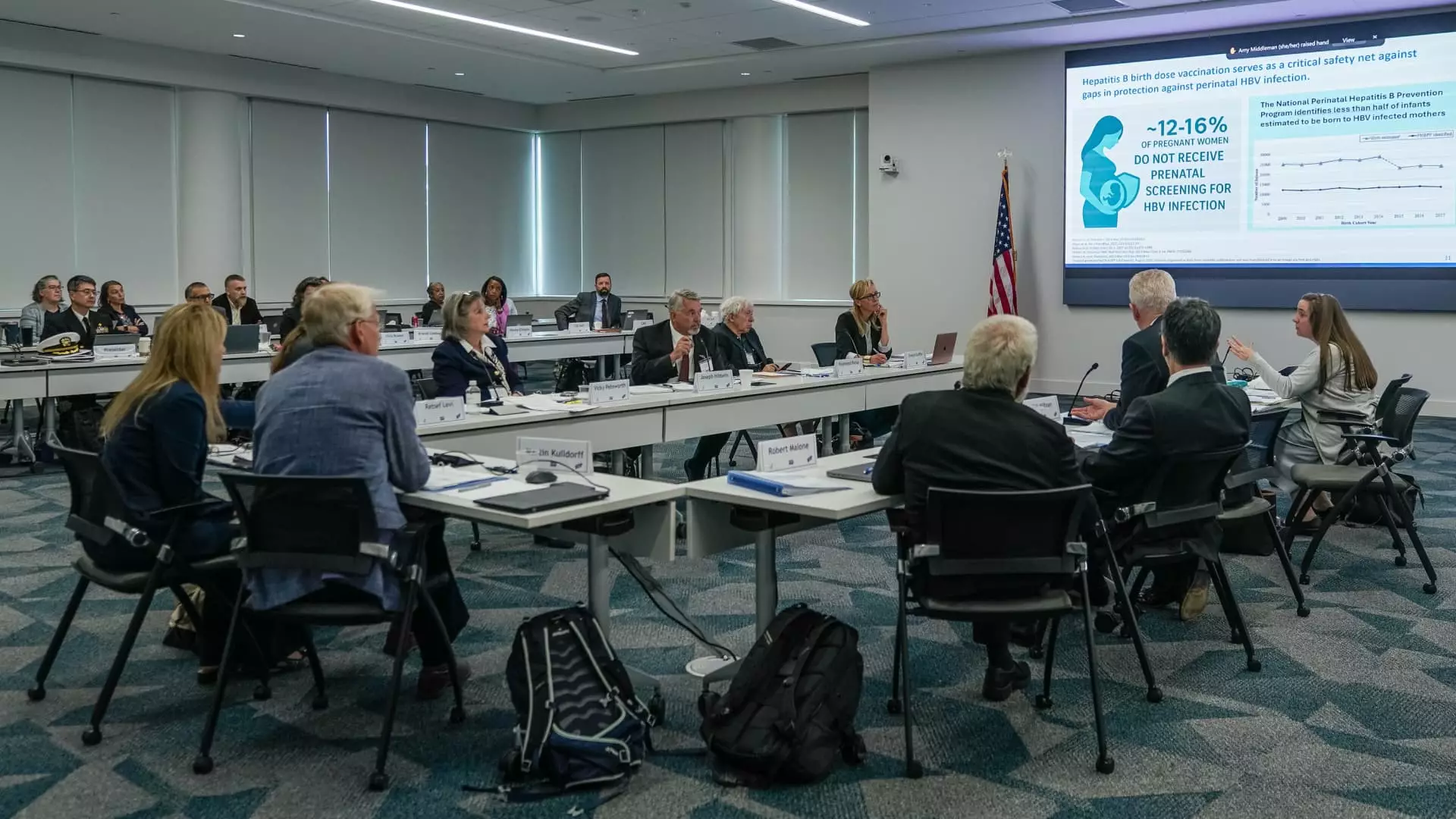In recent discussions surrounding childhood immunizations, one point emerges with unsettling clarity: the proposed delay of the hepatitis B vaccine’s first dose threatens to undo years of hard-won public health victories. While the political narrative may frame this as an act of caution, a deeper analysis reveals a reckless underestimation of the vaccine’s proven safety and effectiveness. The decision to postpone vaccination from birth—not based on concrete evidence but driven by political motives and influence from vaccine skeptics—symptoms a disturbing trend toward second-guessing scientifically validated interventions.
The established consensus holds that vaccinating infants within 24 hours of birth is both safe and essential in the eradication of hepatitis B, a disease responsible for chronic liver conditions and cancers. Decades of data support this, showing that early immunization is not only effective at preventing immediate infection but also crucial at diminishing the chances of long-term health complications. To entertain the idea of delaying this dose is to gamble with public confidence and the well-being of an entire generation under the guise of caution, when in fact, the evidence underscores relative safety and immense benefit.
A Political Shift Threatening Scientific Consensus
The recent reshuffling of the Advisory Committee on Immunization Practices (ACIP), orchestrated by Secretary Robert F. Kennedy Jr., underscores the dangerous sway of political ideology in health policy. The appointment of skeptics and critics—some with questionable credentials—raises alarms about the integrity of the consensus process. Such a move does not merely reflect a legitimate debate on vaccine scheduling but appears motivated by efforts to sow doubt, weaken immunization programs, and appease vaccine critics with a public health setback.
This politicization risks leading America back to a time where preventable diseases flourished, ultimately endangering the most vulnerable: newborns. The advocacy for delaying the hepatitis B dose hinges on claims of safety concerns that are largely unfounded in the scientific literature. It is an ideological gambit, not a medical necessity, that could compromise decades of progress.
The Risks of Delaying: More Than Just Fears
Critics argue that safety concerns warrant caution, but reality presents a different picture. The evidence collected over the last 30 years clearly demonstrates that administering the hepatitis B vaccine at birth is both safe and critical for preventing infection. Postponing the initial dose to at least one month introduces tangible risks—particularly the chance of perinatal and early childhood transmission—potentially leading to chronic infections and their devastating consequences, including liver failure and cancer.
It is noteworthy that opponents of immediate vaccination often emphasize “uncertainty,” but what they overlook is that delaying vaccination diminishes the protective window. The process of immunization is a proven public health success story precisely because it acts early to keep the disease at bay in the most vulnerable age group. Any deviation from this schedule must be justified by incontrovertible scientific data, which, in this case, simply does not exist.
Economic and Ethical Implications of Political Interference
The influence of vaccine manufacturers such as Merck and GSK on the debate further complicates the discourse. These corporations have a vested interest in maintaining the current vaccination schedule because their products are designed for early administration. They bear the weight of substantial research confirming safety and efficacy, which, crucially, should remain the foundation of public health policy.
The ethics behind delaying vaccination to appease critics or political pressures are questionable at best. Public health decisions must prioritize evidence-based practices over political convenience or economic interests. Delaying a well-established, safe intervention can lead to increased healthcare costs, more disease burden, and a loss of public trust in immunization programs.
The True Cost of Promoting Uncertainty
By entertaining doubts about vaccine safety when data overwhelmingly support its use, policymakers risk creating a ripple effect of skepticism. Public confidence in vaccines is fragile and built over decades of transparent communication and scientific validation. Undermining that trust by endorsing delays based on unsubstantiated claims may lead to lower vaccination rates, resurgence of hepatitis B, and similar preventable diseases.
The long-term societal impact is profound. When public health measures that have effectively eradicated or minimized diseases are challenged without solid scientific backing, the result is a potential return to outbreaks and unnecessary suffering. Vaccine hesitancy fueled by political machinations, not science, is perhaps the most insidious threat to public health today.
<h2>Final Reflection: Protecting Progress with Decisive Action</h2>
The decision to delay the hepatitis B vaccine’s first dose under the guise of safety concerns reflects a dangerous departure from what history has shown us: early vaccination saves lives. By allowing political influences and vaccine critics to sway foundational health policies, we risk reversing the long-term gains made against infectious diseases. Critical scrutiny must focus on safeguarding proven interventions rather than entertaining distractions dressed as caution, lest we compromise the health and future of the most vulnerable among us.

